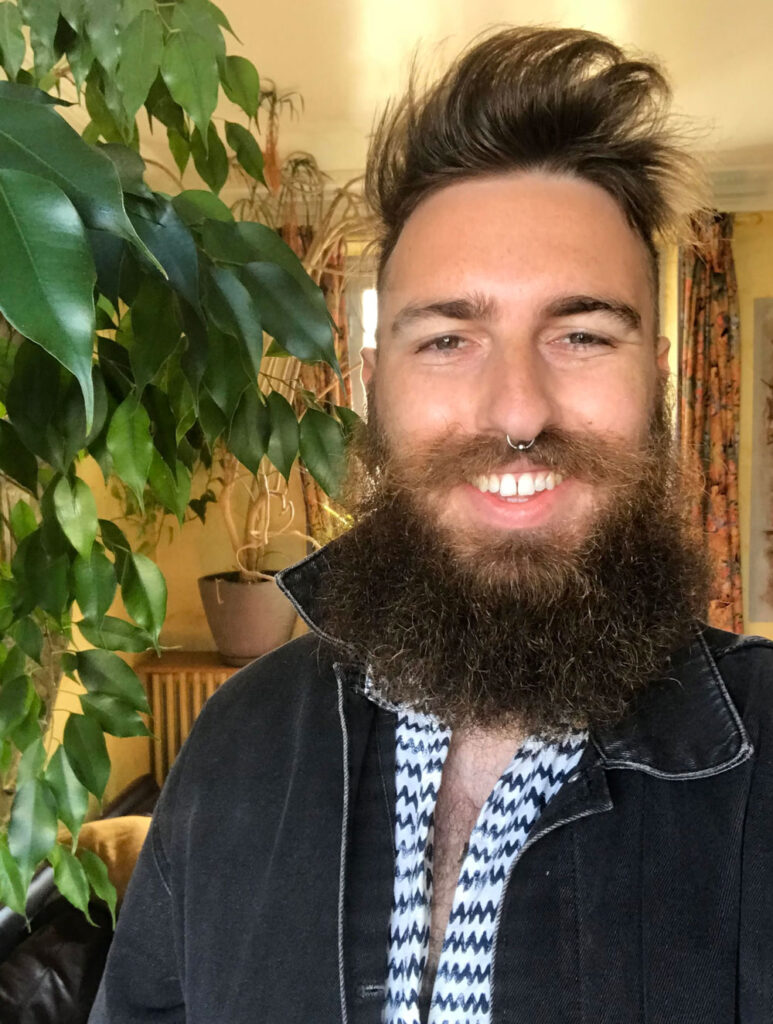Congratulations to Benjamin Dalton who has recently completed his LAHP-funded PhD
‘My LAHP studentship allowed me to complete my PhD thesis entitled ‘Plasticity in Contemporary French Thought, Literature and Film: Witnessing Transformations with Catherine Malabou’ in the department of French, King’s College London. My thesis explored the work of the contemporary French philosopher Catherine Malabou, whose interdisciplinary concept of plasticity traces the ways in which different structures and lifeforms are mutable or ‘plastic’ and capable of transformation. For example, Malabou turns to neuroscientific research into the (neuro)plasticity of the brain, which demonstrates that the brain undergoes constant change and transformation throughout a lifetime. I argued that contemporary literature and film are also able to shed light on diverse forms of plasticity—in the body, in the brain, and beyond—which resonate with and challenge Malabou’s concept. Bringing Malabou into dialogue with literature and film, I suggested, can extend our knowledge of plasticity and of how we transform; philosophy and cultural production are vital tools alongside the sciences in discovering what plasticity means for us!

I have published parts of my research across various different platforms. My recent publications include an article on plasticity in the writing of Marie Darrieussecq entitled ‘Forms of Freedoms: Marie Darrieussecq, Catherine Malabou, and the Plasticity of Science’ in Dalhousie French Studies (2020); a book chapter on queerness and plasticity entitled ‘Cruising the Queer Forest with Alain Guiraudie: Woods, Plastics, Plasticities’ (2019); and an interview with Catherine Malabou in Paragraph (2019). I have spoken about my research at both academic conferences and public-facing festivals, including a talk at HowTheLightGetsIn which you can watch here, which was accompanied by a blog for the Institute of Art and Ideas. I also wrote a blog post for LAHP’s online journal Still Point about representations of the brain in B-movies. I am currently working on the manuscript for a monograph building on my doctoral research.
LAHP were also extremely supportive of interdisciplinary and collaborative projects which I carried out alongside my research. For instance, LAHP’s ‘Research Extension and Placement Fund’ generously allowed 6 extra months of funding which recognized time that I had spent working on my KCL Collaborative Scheme for Early Career Researchers project ‘Narrating Plasticity: Stories of Transformation between the Plastic Arts and Neurosciences’ (2017-2018), funded by KCL’s Culture team, as well as time I spent at the University of Philadelphia, Pennsylvania. My time in the US allowed me to give various talks on my research at UPenn and elsewhere, including a guest talk at Smith College in Northampton, Massachusetts, generously invited by Carolyn Shread, translator of many of Malabou’s works. During this time, I also travelled to the University of Irvine, California, to conduct an interview with Malabou which is now published in Paragraph (2019). My time in the US was further supported by LAHP’s ‘Study Visit and Conference Fund’, without which it would not have been possible.
LAHP has also provided so much support on a personal level, offering a wonderful network of researchers and organising events to encourage collaboration and friendship. One particular evening I remember was the LAHP Christmas event, in which we all met at the Charles Dickens Museum and enjoyed a tour and mince pies! LAHP also organised regular writing workshops, permitting PhD researchers to work together in the same location, share ideas, and think differently about our writing and researching practices.
I currently teach English language and literature at Paris Nanterre University and the New Sorbonne University in Paris. Looking forward, I plan to continue my academic career and further develop my research in the areas of French studies and the medical humanities. I’m so grateful to the LAHP for all of the support they have provided, and for the rich and exciting research environment they have provided. This period of my life was an adventure I will never forget!’

